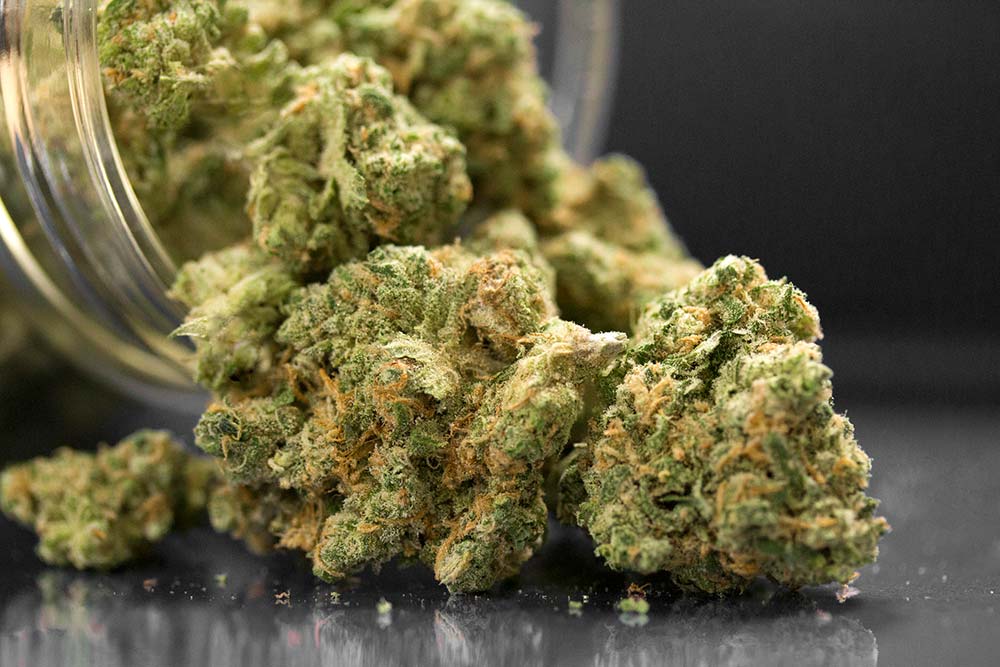
The U.S. Supreme Court announced that it will hear it’s second Second Amendment case this term in United States v. Hemani (Docket No. 24-1234), a major challenge to the federal statute 18 U.S.C. § 922(g)(3) — the law that bars anyone “who is an unlawful user of or addicted to any controlled substance” from possessing a firearm. The decision in this case will have serious implications for gun owners across the country, especially in jurisdictions where marijuana has been legalized and conflicts with federal prohibitions.
The case arises out of Texas and involves defendant Ali Danial Hemani, a dual U.S./Pakistan citizen. According to court filings and news reports, the FBI searched his family home and found a 9mm handgun, marijuana, and cocaine. Hemani admitted to using both drugs.
Hemani was indicted under § 922(g)(3) for possessing the firearm while being an unlawful drug user or addict. He then challenged the law as unconstitutional as applied to him, arguing his Second Amendment rights were violated. The district court dismissed the indictment, and in January 2025, the Fifth Circuit affirmed, holding that the government failed to show Hemani was intoxicated at the time of gun possession and that history does not support disarming citizens based solely on drug use.
The U.S. Department of Justice petitioned for Supreme Court review, arguing that the Fifth Circuit’s ruling conflicts with other appellate courts and undermines Congress’s ability to restrict guns from “habitual drug users.”
The facts of the case are not necessarily favorable to gun owners or those hoping to end the federal prohibition on marijuana users from possessing firearms. Many in the gun rights community have drawn comparisons between the Hemani case and the Rahimi decision, which has proven to be the worst Supreme Court decision against Second Amendment rights in recent history. There are also a number of other cases that could be considered to have better facts behind them to rule favorably for gun owners if they were brought to SCOTUS.
The “most pro-2A Department of Justice” hand picked a literal terrorist to be the defendant in the next Second Amendment Supreme Court case.
As @AGPamBondi well knows, bad facts make bad law—just like U.S. v. Rahimi. https://t.co/TEBhCJcAZu pic.twitter.com/448wKK4aHh
— Gun Owners of America (@GunOwners) October 20, 2025
The Court will decide whether applying § 922(g)(3) violates the Second Amendment’s text and history, but the facts of the case do not make that decision a certainty to go in favor of gun owners.
Under the Bruen framework, modern firearm restrictions must be consistent with the “nation’s historical tradition of firearm regulation.” That means the government must show analogous laws from the founding era that disarmed similar categories of people.
Mark Smith of the Four Boxes Diner had this to say to AmmoLand about U.S. v. Hemani:
“When the Trump DOJ sought cert on the question of whether 18 USC 922(g)(3) comports with the Second Amendment, it was almost a guarantee of a cert grant. When you have a situation where a federal statute has been declared by a lower court of appeals to be unconstitutional, and you have a circuit split among the lower courts about the legal question, then if the US Solicitor General asks the Supreme Court to resolve the split in authority, it is about a 99% certainty of the Court granting cert. So, it is no surprise cert was granted in Hemani.”
“The Supreme Court will likely uphold 922(g)(3) as consistent with the Second Amendment and its prior Rahimi decision. Rahimi stands for the proposition that you can be temporarily disarmed while you present a danger to yourself or others. 922(g)(3) will be found consistent with this on the grounds that if you are “an unlawful user of or addicted to any controlled substance” like cocaine or marijuana, then you are a physical danger to yourself or others and, thus, you can be temporarily disarmed while you remain an unlawful user or an addict.”
“The Supreme Court will likely point to the founding era surety and affray laws, which is what the Supreme Court relied on in Rahimi. If you add onto those laws the additional founding-era laws concerning “lunatics” and “idiots,” as those terms were used in the 18th century, then you likely have a sufficient basis for disarming temporarily those individuals who pose a danger to themselves or others because of their illicit drug use.”
“The Trump DOJ’s support of the Second Amendment for law-abiding Americans while supporting criminal laws directed toward dangerous criminals is mostly consistent. The greatest danger to Americans and to our Second Amendment rights is when some psychopathic, violent thug misuses firearms, which in turn causes a public push for more gun control and a restriction of Second Amendment rights. The Trump DOJ wants dangerous criminals locked up and disarmed not just for public policy reasons, but to help protect our right to bear arms against calls for gun control arising after the criminal misuse firearms.”
So far, the Fifth Circuit has repeatedly held that the government cannot meet that burden. However, the Supreme Court is likely to have a different view if you consider their posistion in Rahimi. The court will rely on the precedent set in Rahimi, which laid out that people who are dangerous can be temporarily disarmed.
In filings with the Court, the Justice Department has emphasized the phrase “habitual users of unlawful drugs.” DOJ contends that habitual drug use correlates with impaired judgment and increased risk of violence, likening the ban to historical restrictions on intoxicated persons or “drunkards” carrying weapons. The government also portrays the law as temporary—asserting that individuals can regain their rights once they stop using illegal drugs.
But critics note that this interpretation effectively expands the statute beyond its language and risks criminalizing millions of otherwise responsible Americans, including state-legal marijuana users who are compliant with local law but still considered “unlawful users” under federal law.
If the Supreme Court upholds the Fifth Circuit’s reasoning, it would limit the federal government’s ability to disarm citizens based on lifestyle or status alone. The distinction between being intoxicated and merely having used a controlled substance would become constitutionally significant.
For gun owners, particularly those in states where cannabis is legal, the decision could determine whether federal law continues to treat them as prohibited persons despite state compliance.
Until the Court rules, the federal prohibition remains in effect, and firearm dealers are still required to deny purchases to anyone who admits to unlawful drug use on the ATF Form 4473. Making a false statement on that form remains a felony. Something that Joe and Hunter Biden know all too well now.
The Supreme Court’s decision in United States v. Hemani will be a defining test of the Second Amendment’s reach in the post-Bruen era. At its heart, the case asks whether the government may disarm someone based only on status—being an “unlawful user” of a controlled substance—or whether the Constitution demands proof of actual impairment or danger at the time a gun is possessed.
If the Fifth Circuit’s reasoning stands, Hemani could draw a bright line between conduct and condition: the government may punish criminal acts or armed intoxication, but not strip rights from citizens for past or private behavior unrelated to misuse of a firearm. That outcome would reaffirm what most gun owners already understand—the right to keep and bear arms is an individual right, not a privilege that disappears because of lifestyle choices Washington disapproves of.
But if the Court sides with the Department of Justice and embraces a broad “habitual user” standard, millions of otherwise law-abiding Americans—particularly in the 38 states that have legalized marijuana in some form—could remain trapped between state-level freedom and federal prohibition. The stakes reach far beyond one Texas indictment; the ruling will determine whether federal agencies can keep using vague status labels to chip away at constitutional rights.
As this case moves toward oral argument in early 2026, every gun owner should pay attention. The outcome will tell us whether the Second Amendment protects people or only those who fit neatly inside the government’s ever-shrinking definition of the “law-abiding.”
AmmoLand will continue covering United States v. Hemani through briefing, oral arguments, and the final decision expected next summer.
Trump on National Concealed Carry Reciprocity, “We are talking about that”
Supreme Court Weighs Warrantless Home Entries in Case v. Montana






Alcohol is more dangerous then most forms of Marijuana/THC/THCa. Just my opinion. Please spare me the predictable ‘today’s marijuana is more potent”, lame arguments. Please. Thank you.
Many people have posted here affirming the right of self defense as a God given right. Now we have opinions expressing the concept that illegal drug users should not have the right to self defense. Now I wonder what other constitutional rights should be denied to illegal drug users according to Ammoland Readers. Illegal Drug users are already caught up in a ” Catch – 22 “. They can not really use their 1st Amendment rights to make a case because to do so can bring the full weight of the government down upon them. The argument against illegal users… Read more »
It’s all political bullshit , when politicians want votes they talk about rescheduling it from a schedule one drug to a schedule 3 drug and once the election is over they forget all about the rescheduling they talked about when campaigning . Like I said it’s all political bullshit by a bunch of con men .
Pot or booze it doesn’t matter because they both effect your ability to aim and your judgement so neither of them mix.
Just say NO!!!!!!
This pretty much guarantees that SCOTUS will not hear the far more important AWB or magazine capacity laws this term. The only hope for the Hemani case is an as applied ruling and I don’t know if the Supremes issue rulings like that. Mark Smith (or was it William Kirk?) has said in the past that “bad cases make bad law.” Hemani looks to be another dirtbag who will make bad law for the otherwise law abiding citizens.
Liberals could make the US urine processing industry a world leader!
Pop quiz: Name the one schedule 1 drug with no lethal dose…. Hmmm.
Consider for a moment what your great grandparents could buy over the counter anywhere. Somehow we survived that and Big Pharma did not exist.
Just finished reading ALL of the posts in this thread, and can determine that there is still the “pot vs alcohol” crowd here. I’m a (former) alcoholic. It’s been 30 years now since my last drink. I did things back then that I don’t know how I’m still alive, or not in prison, but I survived. I would NEVER have thought about using a gun while I was drinking. I would NEVER also think about using a gun while using pot. According to the LAW, saying you smoked a joint once is grounds to disallow you to own a gun.… Read more »
People say alcohol is worse, but the truth is we have seen ravages of alcohol because it is legal ,few see ravages of pot. Any poison and yes if it alters your brain it is poisoning you , has good and bad uses . Arsenic was used to cure Diseases too much kills . the all things in moderation is the best path but most humans are too stupid to follow that path
This bad news just in: “POLITICO has learned. The government shut down employee reduction plan was another example, like several during the layoffs led by Elon Musk’s Department of Government Efficiency this spring, in which Trump’s agency heads have pushed back successfully against top-down cuts.” Trump agency heads resisting? I know where the furloughs should start.